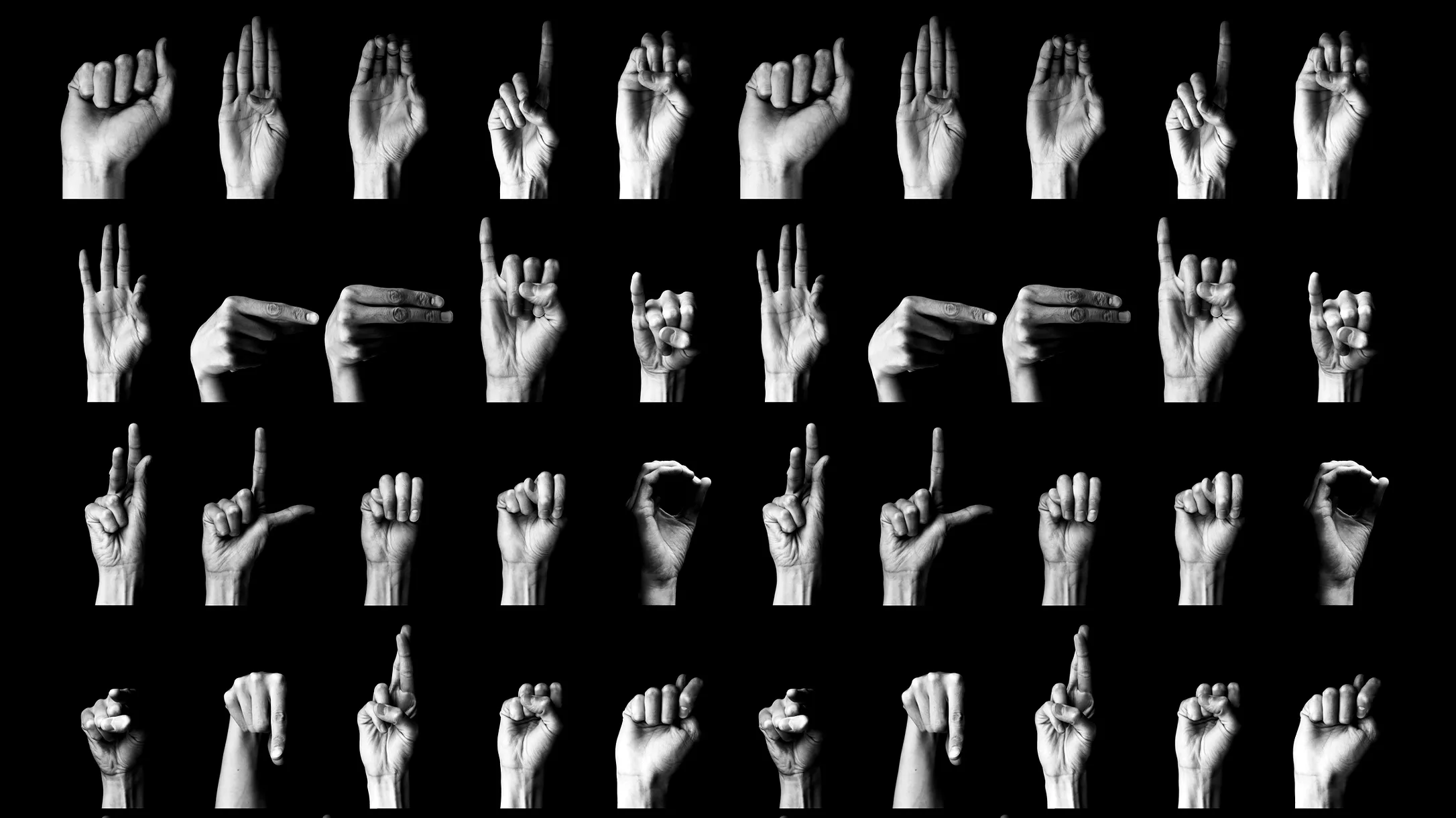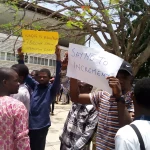Amina Abubakar Haruna was born with a physical disability called lower limb. While growing up amid a loving family in Dorayi, Kano State, she had a memorable and fun childhood experience.
The 24-year-old wasn’t denied a chance at education. She was even fortunate to have had wonderful moments during her elementary and secondary school days. It was enjoyable because she hadsupportive teachers and classmates “who treated me with kindness and respect,” she said.
Her amazing journey later secured her admission to study Special Education at Bayero University Kano. During her sophomore year at the institution, Haruna was influenced by her mentors and classmates to become an advocate for the education and rights of persons with disabilities.
In 2022, Haruna started learning sign language after realising that since her legs weren’t working, she could use her hands to communicate with people with hearing impairments.
“That motivated me to learn the skill through some of my classmates who have hearing impairments,” she expressed.
Abdulsalam Abubakar is among the people who make the learning process easier for her. He told Prime Progress that when they met, she knew nothing about sign language.
“When I understood her interest, I persuaded her to join us and learn sign language for the deaf. I’m impressed by her growth. She is doing it well and impacting the lives of people,” Abubakar said.
Haruna is now receiving invitations from individuals and organisations to practise the skill at ceremonies and conferences. Before presenting herself at the events, she makes sure to be familiar with the topic or theme of the event.
“I research relevant vocabulary and concepts to ensure accuracy in my interpretations. I also practise my interpreting skills to maintain fluency and clarity. It’s important to be well-prepared and confident in conveying the intended message to facilitate effective communication,” Haruna said confidently.
Disseminating effective communication among those with hearing challenges gives Haruna a sense of fulfilment. She is now paving the way for them to fully engage in events and conversations that were previously inaccessible to them.
Ibrahim Abdullahi is a beneficiary of her services. As someone with a hearing impairment, sign language has become the capital language that is reshaping his life.
“Without it, I cannot communicate or understand anything when it comes to communication,” said Abdullahi.
Haruna plays a decisive role in helping him understand conversations. “Honestly, sheis still impacting my life and other people like me. She is helping us break the gap of communication we have been battling with,” confessed Abdullahi.
Celebrating the International Day of Sign Languages
The United Nations General Assembly has declared 23 September as the International Day of Sign Languages in order to raise awareness about the significance of sign language in the recognition of the human rights of people who are deaf.
The day was first celebrated in 2018 as part of the International Week of the Deaf. This year’s celebration of the International Day seeks to foster unity among Deaf communities, governments, and civil society organizations in their unanimous efforts of promoting and celebrating national sign languages as part of their countries’ active and diverse linguistic landscapes.
According to the World Federation of the Deaf, there are more than 70 million deaf people worldwide. More than 80% of them that live in developing countries are collectively using more than 300 different sign languages.
Haruna is excited about this day and is hoping to celebrate it by creating awareness on her social media handles to give a voice to deaf people.
“These people shouldn’t be discriminated against based on their disability. The stigma and negative attitudes towards them must stop,” she demanded.
Advocating for rights
Beyond the celebration, Haruna pledged to continue her activism for the inclusion of people with disabilities in decision-making and opportunities for personal growth and development.
She felt that accessibility in public places alone doesn’t meet the needs of persons with disabilities. “Communication andmedia materials must also be accessible to them,” said Haruna.
Even though some people discriminate against Haruna because of her disability, she vows to keep harnessing her skills because of the few people around her who are expressing their excitement about what she does.
“People always come to me after events to show their satisfaction,” Haruna shared. Some of her admirers are academic professors and moments like that made her develop the passion for the job even more.
The ability to facilitate meaningful interactions and empower others even as a person with disability is truly encouraging for Haruna. Today, she is not giving up this journey.
“My future plan is to establish a non-profit organization where I will be giving free scholarship to children and women disabilities,” concluded Haruna.






